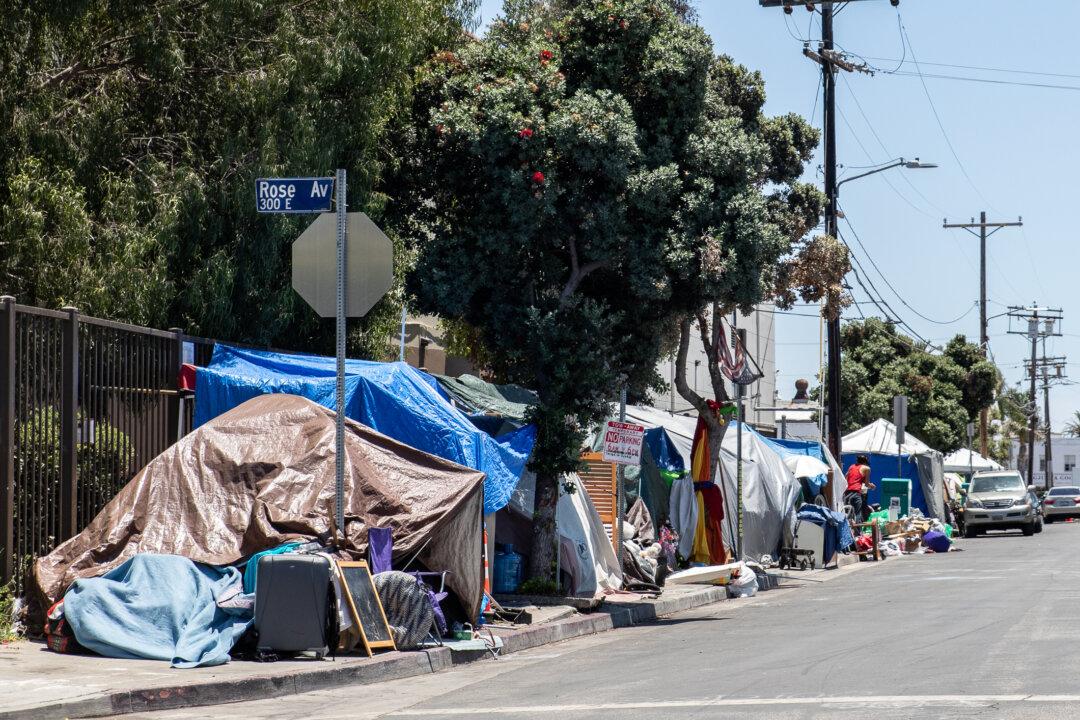The city of Los Angeles has resumed its CARE Plus homeless encampment cleanups after the cleanups were paused during the COVID-19 pandemic.
Earlier this year, the city council voted to resume the cleanups, which require the homeless to take down their tents so the Los Angeles Sanitation Department can sweep and wash the streets and remove trash and waste from the area, beginning on Sept. 1, with amendments for “enhanced street engagement strategies” proposed by Councilmembers Mike Bonin and Nithya Raman. Those strategies include EZ-up tent distribution and exchanges, along with water bottle and sanitary kit exchanges, and voluntary trash disposal options.





